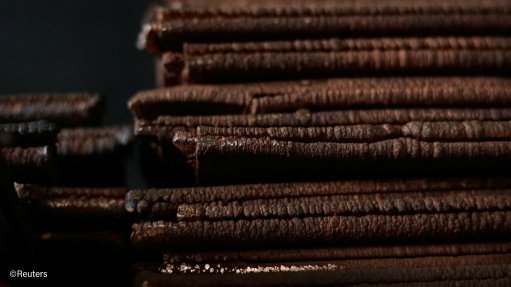Public hearing participant questions Nersa mandate in evolving electricity market
The National Energy Regulator of South Africa (Nersa) was outdated, and regulation changes were needed to bring it in line with current trends, the only respondent to public hearings into gold miner Gold Fields' application to build a 40 MW solar plant near its mine in Westonaria said on Thursday.
Brian Day, of Today Innovation, said at the public hearing that he supported power plant licences, such as the one applied for by Gold Fields. “I fully support the applicant, and anyone else who wants to generate electricity for a private client to be issued with the requisite generation licence by Nersa.”
However, he questioned the “need for this private business arrangement to require such licensing”. Day went on to propose that the Electricity Regulation Act be amended to catch up with the “new reality of multiple generators in South Africa’s electricity supply industry”.
As such, Day referred Nersa panellists to a November briefing note by Meridian Economics which covered unlocking similar short-term challenges.
“Since the above recommendation is outside of the scope of this hearing and requires legislative actions from Parliament I need to request clarity under the current regulatory regime,” posited Day.
Through a lengthy analogy, he alluded that Nersa might be committed to an “outdated and obsolete” mandate, the sole purpose being to keep the monopoly of national power production to Eskom, including undermining the adoption of larger-scale renewable energy production for large industrial users.
He used the analogy to provoke thought about what Nersa’s role “should be” when a private company wanted to buy electricity from another private company. “One must ask, therefore, what issues and risks that led to the establishment of the regulator still exist today for such a power purchase agreement.”
Chairing the hearing, Nersa representative Nhlanhla Gumede said that the hearing served the purpose of gathering data on the proposed application and that it would be difficult to provide a response to Day’s questions and suggestions at such a point in time.
However, he noted that Nersa was embarking on changes to its regulation of the energy environment. “Fortunately, as we are embark on that we also have to go through stakeholder engagements to propose certain regulatory reform. This will all be done within the ambit of the existing regulatory framework.”
Gumede noted that comprehensive feedback to Day’s questions would be issued at a later stage.
In his closing arguments, Gumede said that most mines tend to operate in remote areas where it would be hard for the State to provide power unless it had an anchor client which enabled bulk supply to the area. On the basis of that anchor client, Gumede said it would then be possible to build small industries around that anchor client that would more greatly justify bringing power to that area.
Talking about Nersa’s mandate, he said that sometimes Nersa regulations were designed not just to protect the large entities (Gold Fields in this case), but to determine ways to better serve local communities that might be destitute in terms of power availability. “Whenever something is added to the gird, it can stabilise it or destabilise it and there is a need for Nersa to have an understanding around these issues.”
Further, Gumede pointed out that Nersa, in grating licences, did not want to create “islands of opulence” where projects exist with power and everything around them was in the dark. “How do we share that development with everybody around it,” he posed. In such instances, Gumede said Nersa might consider building into the licensing agreement the requirement for additional power capacity to electrify the local community.
Comments
Press Office
Announcements
What's On
Subscribe to improve your user experience...
Option 1 (equivalent of R125 a month):
Receive a weekly copy of Creamer Media's Engineering News & Mining Weekly magazine
(print copy for those in South Africa and e-magazine for those outside of South Africa)
Receive daily email newsletters
Access to full search results
Access archive of magazine back copies
Access to Projects in Progress
Access to ONE Research Report of your choice in PDF format
Option 2 (equivalent of R375 a month):
All benefits from Option 1
PLUS
Access to Creamer Media's Research Channel Africa for ALL Research Reports, in PDF format, on various industrial and mining sectors
including Electricity; Water; Energy Transition; Hydrogen; Roads, Rail and Ports; Coal; Gold; Platinum; Battery Metals; etc.
Already a subscriber?
Forgotten your password?
Receive weekly copy of Creamer Media's Engineering News & Mining Weekly magazine (print copy for those in South Africa and e-magazine for those outside of South Africa)
➕
Recieve daily email newsletters
➕
Access to full search results
➕
Access archive of magazine back copies
➕
Access to Projects in Progress
➕
Access to ONE Research Report of your choice in PDF format
RESEARCH CHANNEL AFRICA
R4500 (equivalent of R375 a month)
SUBSCRIBEAll benefits from Option 1
➕
Access to Creamer Media's Research Channel Africa for ALL Research Reports on various industrial and mining sectors, in PDF format, including on:
Electricity
➕
Water
➕
Energy Transition
➕
Hydrogen
➕
Roads, Rail and Ports
➕
Coal
➕
Gold
➕
Platinum
➕
Battery Metals
➕
etc.
Receive all benefits from Option 1 or Option 2 delivered to numerous people at your company
➕
Multiple User names and Passwords for simultaneous log-ins
➕
Intranet integration access to all in your organisation


















